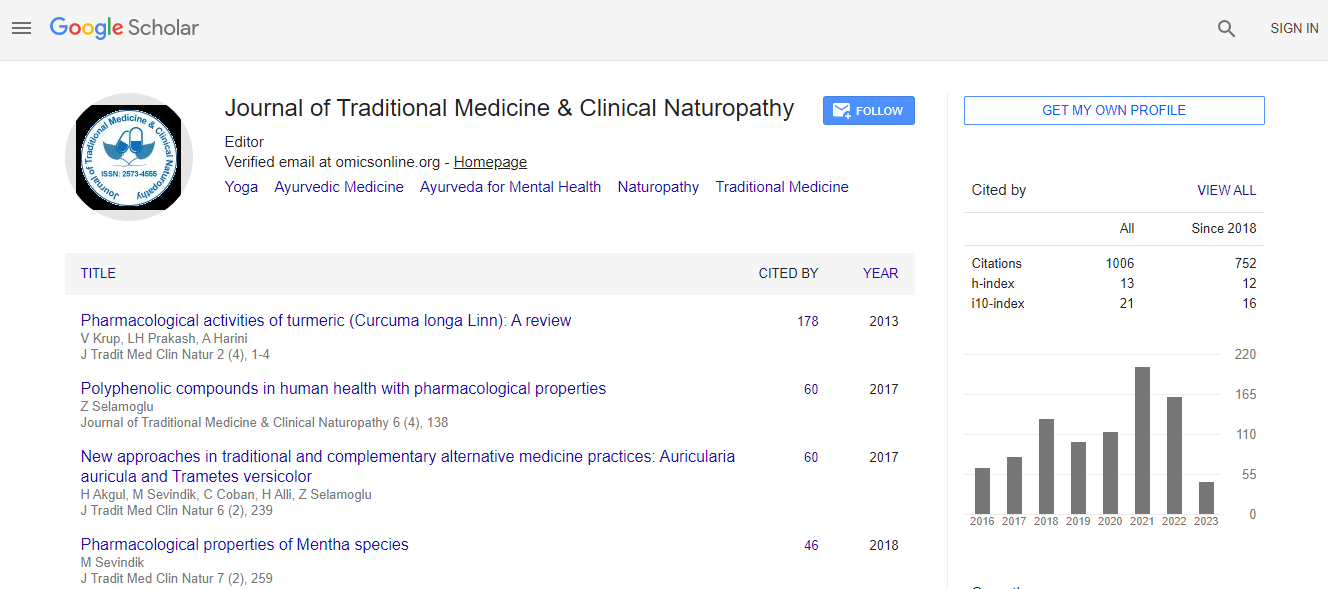Our Group organises 3000+ Global Events every year across USA, Europe & Asia with support from 1000 more scientific Societies and Publishes 700+ ║┌┴Ž═° Journals which contains over 50000 eminent personalities, reputed scientists as editorial board members.
║┌┴Ž═° Journals gaining more Readers and Citations
700 Journals and 15,000,000 Readers Each Journal is getting 25,000+ Readers
Citations : 1504
Indexed In
- CAS Source Index (CASSI)
- Google Scholar
- Sherpa Romeo
- Open J Gate
- Genamics JournalSeek
- RefSeek
- Directory of Research Journal Indexing (DRJI)
- Hamdard University
- EBSCO A-Z
- Publons
- Geneva Foundation for Medical Education and Research
- Euro Pub
- ICMJE
Useful Links
Recommended Journals
Related Subjects
Share This Page
An old and new assessment of frailty and heart failure in the elderly: The correlation between kamposcores, the timed up and go test, and indices with echocardiography
6th International Conference and Exhibition on Traditional & Alternative Medicine
Kazunari Ozaki, Mitsuru Kageyama, Yoshio Nakamura and Hiromi Rakugi
Itami City Hospital, Japan Kageyama Clinic, Japan Osaka City University Graduation School of Medicine, Japan
ScientificTracks Abstracts: J Tradi Med Clin Natur
DOI:
Abstract
Background: There is, obviously, a growing interest in the concept of ├ó┬?┬?frailty├ó┬?┬Ø in various areas of medicine. Gait speed is a key component of evaluating frailty. The Timed ├ó┬?┬?Up and Go├ó┬?┬Ø Test (TUG) is a commonly used measure of functional mobility in the elderly. Meanwhile, optimal design of noninvasive evaluations for diastolic heart failure (HF) remains limited due to the deficiency of simple clinical criteria. Furthermore, numerical scoring systems to evaluate patients├ó┬?┬? physical conditions have been induced in Kampo-medicine (Japanese Traditional Medicine). Suitai (water stagnation)-score and Qi (vital energy)-deficiency (QD)-score are one of so-called Kampo-scores. Objectives: This study aimed to examine the correlation between the TUG, Kampo-scores, and the indices with echocardiography in hemodialysis outpatients with chronic HF. Methods: We studied 46 outpatients at the hemodyalysis unit with simultaneous Kampo-scores, the TUG, cardiographical indices with Doppler. The TUG score is the seconds it takes to complete the assignment (a patient stands, walks 3 m, turns, and returns and sits down). We estimated the Kampo-scores with questionnaire and physical examination. We also measured and compared Kamposcores, the TUG and echo-cardiographical indices by linear regression. Results: Some of the Kampo-scores (Suitai-score and QD-score) had positive correlation to the TUG [r=0.68, p<0.003, r=0.65, p<0.04,]. E/e├ó┬?┬? had positive correlation to the TUG [r=0.70, p<0.00001]. Suitai-score had positive correlation to E/e├ó┬?┬? [r=0.75, p<0.001]. Conclusions: Our data suggest that Kampo-scores, which are simple, non-invasive and cost-effective clinical assessments, especially Suitai-score and QD-score, can be used to define clinical evaluation of frailty in hemodialysis outpatients with chronic HF.Biography
Kazunari Ozaki is an expertise in Kampo-medicine (Japanese Traditional Medicine) and practices as a Geriatrician-in-Chief at Itami City Hospital, Japan. He was a Cardiologist in the Division of Geriatric Medicine and Hypertension (to date, Department of Geriatric and General Medicine), Osaka University Medical Hospital and has also completed his PhD from Osaka University Graduate School of Medicine. He is a fellow of the Japan Society for Oriental Medicine, and a fellow of the Japan Liason of Oriental Medicine. He has been serving as an Editorial Board Member of the Journal of Kampo, Acupuncture and Integrative Medicine (KAIM).
Email: ozaki@cgt.med.osaka-u.ac.jp

